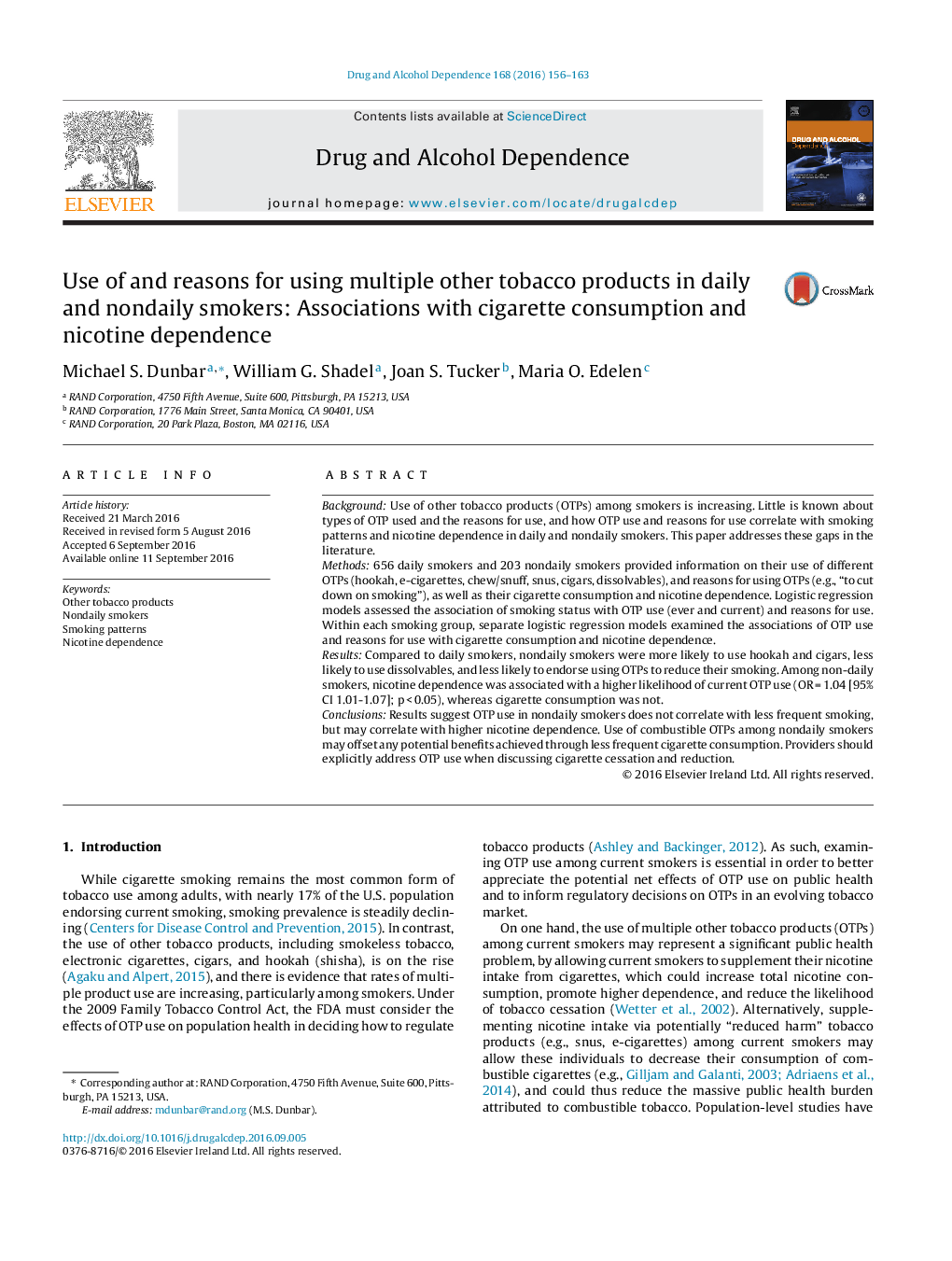| کد مقاله | کد نشریه | سال انتشار | مقاله انگلیسی | نسخه تمام متن |
|---|---|---|---|---|
| 5120461 | 1486123 | 2016 | 8 صفحه PDF | دانلود رایگان |
- Nondaily (vs. daily) smokers were more likely to use other combustible products.
- Nondaily smokers were less likely to use other products to cut down on smoking.
- Higher dependence âbut not smoking rate- predicted product use in nondaily smokers.
- Use of other tobacco products may promote dependence in nondaily smokers.
BackgroundUse of other tobacco products (OTPs) among smokers is increasing. Little is known about types of OTP used and the reasons for use, and how OTP use and reasons for use correlate with smoking patterns and nicotine dependence in daily and nondaily smokers. This paper addresses these gaps in the literature.Methods656 daily smokers and 203 nondaily smokers provided information on their use of different OTPs (hookah, e-cigarettes, chew/snuff, snus, cigars, dissolvables), and reasons for using OTPs (e.g., “to cut down on smoking”), as well as their cigarette consumption and nicotine dependence. Logistic regression models assessed the association of smoking status with OTP use (ever and current) and reasons for use. Within each smoking group, separate logistic regression models examined the associations of OTP use and reasons for use with cigarette consumption and nicotine dependence.ResultsCompared to daily smokers, nondaily smokers were more likely to use hookah and cigars, less likely to use dissolvables, and less likely to endorse using OTPs to reduce their smoking. Among non-daily smokers, nicotine dependence was associated with a higher likelihood of current OTP use (OR = 1.04 [95% CI 1.01-1.07]; p < 0.05), whereas cigarette consumption was not.ConclusionsResults suggest OTP use in nondaily smokers does not correlate with less frequent smoking, but may correlate with higher nicotine dependence. Use of combustible OTPs among nondaily smokers may offset any potential benefits achieved through less frequent cigarette consumption. Providers should explicitly address OTP use when discussing cigarette cessation and reduction.
Journal: Drug and Alcohol Dependence - Volume 168, 1 November 2016, Pages 156-163
